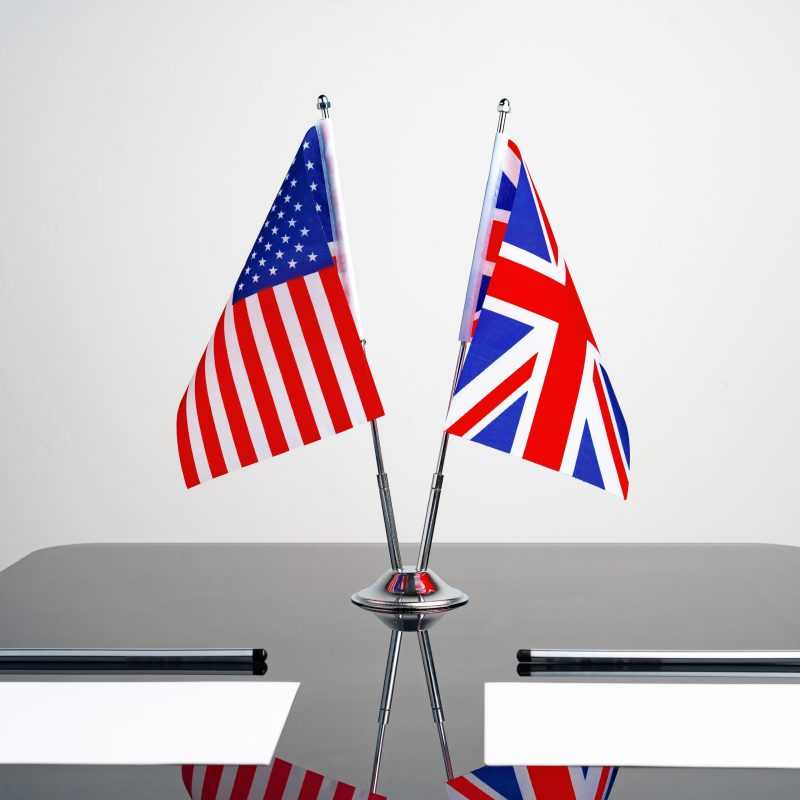

2024 has been a momentous year for democratic change. The “super-election” year is nearly over, with voters all over the world making choices that not only impact their domestic fortunes but create potentially historic, geopolitical shifts.
Never is this truer than in the UK, where Sir Keir Starmer’s Labour party decisively ended 14 years of Conservative rule, and in the United States, with the return of a Trump Administration, seemingly more energised and powerful than before.
This dramatic and unusual switch has inevitably raised questions about what this all means for “the special relationship.” On the face of it, the outlook doesn’t look great. President-elect Donald Trump and Prime Minister Starmer clearly have opposing political instincts.
Trump is seen as anti-interventionist and protectionist—someone who will shrink the state—in stark contrast to Starmer, who believes in multi-lateral working, international rule of law, the promotion of free trade and direct government investment.
But for Starmer, that doesn’t mean he will give up on the hope of a strong relationship with the United States. On the contrary, his political rise highlights his ability to work with those he isn’t naturally aligned, and his team have been making positive overtures towards President-elect Trump for some months.
Smoother Policies
They will look for every opportunity to engage and every opportunity to find common ground, knowing the key to success may ultimately be in convincing the president-elect to make some of his sharper edged policies that little bit smoother.
This may be easier said than done; but, necessity dictates as the Trump presidency has the potential to create huge challenges for the UK government and business.
Starting with the threatened tariffs on all imports, which would leave the UK’s largest exporters such as energy firms, automobile manufacturers, machinery suppliers, defence industry and pharmaceutical sector, particularly exposed.
Even more damaging beyond tariffs on UK goods, could be the potential impact on the global economy of Trump’s trade approach. The Labour government are desperate to bring foreign investment into the UK, doing this against a backdrop of a global economic downturn could be very difficult.
Whitehall will hope President-elect Trump’s rhetoric doesn’t match reality, but they know common ground must be found to help mitigate negative exposure for UK business.
Some believe such territory could be discovered around future tech and artificial intelligence (AI) and would encourage a post-Brexit Britain to embrace the likely regulatory “hands off” approach pursued by the United States.
Defence and Security
Likewise on China; many on the opposition benches in Westminster will be vocal about the need for the UK to show the United States it is strong on China, believing cooperation here could lead to favorable conditions for British business. Yet, so far, the UK government has signaled they will take a different approach, one that de-risks rather than de-couples.
On defence and security, the keystone on which the special relationship is built, there are concerns in London about what a change in the United States approach will mean. The UK and Europe rely on the United States to be a leader within NATO and there will be a fear that a step away from this, exposes European security capabilities. This is undoubtably true.
The end of U.S. aid to Ukraine, or potential withdrawal of support for NATO’s current approach, will mean a greater financial and military burden falling on the UK and with a new Defence and Security Review on the horizon, the government will need to reassess resources and make big decisions about future procurement and defence supplies.
To avoid this, the strategy may be to engage Trump personally; for instance, they could highlight the improved levels of European defence spend since he was last president, putting that progress down to his past leadership. Showing Europe will “pay its way” may negate some U.S. frustrations.
Relationship With the EU
In all these areas Starmer will need to work with European allies. One side effect of Trump’s victory could be the strengthening of the UK’s relationship with the EU. Starmer has talked about a reset of relations but said little publicly about how deep and coordinated this might be.
The harder Trump’s approach, the more likely we are to see greater UK-EU cooperation. There is concern in government the UK is now exposed to a global economy, more protectionist than ever. Many close to government believe the Brexit experiment has failed, and the UK must set its position, outside of the EU, but within its orbit, through closer alignment and cooperation. A reworking of Keir Starmer’s previously proposed customs union with the EU, may not be out of the question.
A Common Road
So as Washington D.C., prepares for the transition of power, London will be thinking hard about how it engages with the new Trump administration. Over the coming years there will undoubtably be tensions, but with that UK policy makers will hope there also comes understanding and cooperation.
Keir Starmer knows the importance of the UK’s relationship with the United States, he knows the custodial responsibility, to preserve the “special relationship” he inherits.
For the UK the path to achieving this may not be entirely clear right now, but the new government will seek to tread a common road, with its U.S. partners, whenever and wherever it can.
Related Articles
When Risk-On Meets Risk-Off: Understanding Gold’s Extraordinary 2025
February 17, 2026


